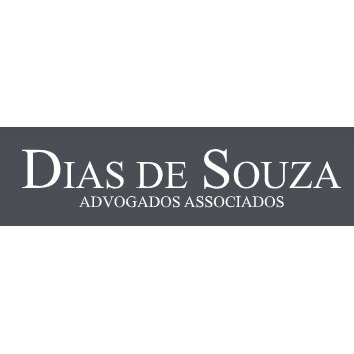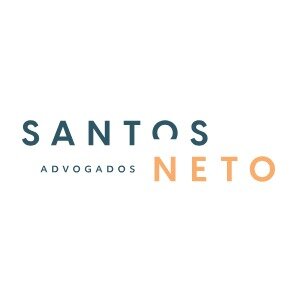Best Water Law Lawyers in São Paulo
Share your needs with us, get contacted by law firms.
Free. Takes 2 min.
List of the best lawyers in São Paulo, Brazil
About Water Law in São Paulo, Brazil
Water Law in São Paulo, Brazil, is a specialized area of law covering the management, use, and protection of water resources within the state. This legal field encompasses the regulation of water rights, allocation and licensing for various uses (such as urban, agricultural, and industrial), protection against pollution, and the enforcement of sustainable use principles. São Paulo follows national water policies set forth by the federal government but also has its own supplementary state laws and specific administrative bodies responsible for managing local water resources.
Why You May Need a Lawyer
Individuals and businesses might need a lawyer specializing in Water Law in São Paulo for a range of situations, including:
- Securing permits for the use or extraction of water from rivers, lakes, aquifers, or other water bodies
- Resolving disputes over water rights or boundaries between neighboring properties
- Compliance with environmental regulations regarding wastewater discharge and pollution control
- Defending against administrative sanctions or fines imposed by regulatory bodies
- Participating in public hearings related to water resource management
- Pursuing restitution or compensation in case of water contamination or wrongful water use by third parties
- Guidance on sustainable water use practices mandated by state or federal law
- Addressing issues involving rural property and irrigation rights
Local Laws Overview
In São Paulo, Water Law is governed by a combination of federal and state legislation. The foundational federal law is the National Water Resources Policy (Law No. 9433/1997), which establishes water as a public good with a decentralized, participatory management approach. At the state level, São Paulo Law No. 7.663/1991 regulates water resources management, focusing on rational use, quality, and integrated administration.
Key aspects include:
- All water resources are public goods and subject to state administration
- Prior licensing is mandatory for water capture (captação) and use beyond certain thresholds
- Protection of water sources and preservation of water quality are legally required
- Payment for water use may be required depending on type and volume
- Regulatory enforcement is primarily performed by the Department of Water and Electric Energy (DAEE) in São Paulo
- There are mechanisms for public participation, such as basin committees, to discuss water management
- Strict penalties can apply for unlicensed water use or causing pollution
Frequently Asked Questions
What is meant by "water rights" in São Paulo?
Water rights refer to the legal entitlement to use water from a specific source. This use generally must be authorized by the state and is subject to specific conditions and limitations.
How do I legally extract water from a river on my property?
You must request authorization from the DAEE, providing details about your intended use, volume, and location. Unauthorized extraction can result in fines and other penalties.
Who owns the water in São Paulo?
All surface and subterranean waters in São Paulo are considered public property, managed by the state regardless of whether they flow through private land.
What is a water use permit and when do I need one?
A water use permit (outorga) is official authorization for water withdrawal or use above a certain volume. It is required for most significant agricultural, industrial, and commercial uses.
What happens if someone pollutes a water body?
Pollution is strictly prohibited. Offenders can face administrative penalties, fines, obligatory cleanups, and even criminal charges in serious cases.
Can I appeal a denial or fine issued by the water authorities?
Yes, administrative appeals can be filed with the issuing agency. In some situations, judicial review in court is also possible.
What are basin committees and how can I participate?
Basin committees are participatory forums composed of representatives from society, users, and the government that manage water resources at the river basin level. Participation typically requires registration and attendance at public meetings.
Are there specific rules for drilling wells for private water use?
Yes, private wells require prior authorization from DAEE, and users must report extraction amounts. Noncompliance may lead to penalties.
What should I do if my neighbor’s water use affects my own supply?
You should first notify the DAEE, which will investigate and potentially mediate or sanction unlawful activities. Legal recourse through the courts may also be available.
Do water laws apply to rainwater harvesting?
Generally, rainwater collection for non-potable domestic or commercial use does not require authorization, but use in significant volumes or for industrial purposes may be regulated.
Additional Resources
For further information and assistance on Water Law matters in São Paulo, consider contacting or referring to the following:
- DAEE (Departamento de Águas e Energia Elétrica do Estado de São Paulo) - The primary regulatory agency for water resources in the state
- Secretaria de Infraestrutura e Meio Ambiente do Estado de São Paulo - Oversight of environmental and water policy
- Comitês de Bacias Hidrográficas - Local participative organizations managing water resources
- Ministério Público do Estado de São Paulo - Public prosecutor’s office for reporting violations or seeking public interest intervention
- Ordem dos Advogados do Brasil (OAB) - São Paulo chapter for legal referrals
Next Steps
If you believe you need legal assistance regarding Water Law in São Paulo, begin by identifying your specific issue, such as licensing, disputes, or compliance concerns. Gather any relevant documents, correspondence, and permits related to your case. Then, consult a lawyer who specializes in Water Law by seeking referrals from the OAB or contacting local environmental law practices. For urgent issues or reporting violations, reach out directly to DAEE or the Ministério Público. The sooner you seek qualified advice, the better your chances for a favorable and efficient resolution.
Lawzana helps you find the best lawyers and law firms in São Paulo through a curated and pre-screened list of qualified legal professionals. Our platform offers rankings and detailed profiles of attorneys and law firms, allowing you to compare based on practice areas, including Water Law, experience, and client feedback.
Each profile includes a description of the firm's areas of practice, client reviews, team members and partners, year of establishment, spoken languages, office locations, contact information, social media presence, and any published articles or resources. Most firms on our platform speak English and are experienced in both local and international legal matters.
Get a quote from top-rated law firms in São Paulo, Brazil — quickly, securely, and without unnecessary hassle.
Disclaimer:
The information provided on this page is for general informational purposes only and does not constitute legal advice. While we strive to ensure the accuracy and relevance of the content, legal information may change over time, and interpretations of the law can vary. You should always consult with a qualified legal professional for advice specific to your situation.
We disclaim all liability for actions taken or not taken based on the content of this page. If you believe any information is incorrect or outdated, please contact us, and we will review and update it where appropriate.

















